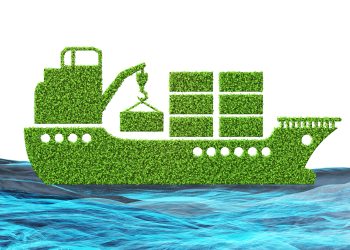Gathered in Klaipeda for their General Assembly, the Federation of European Private Port Operators (FEPORT) members discussed about the strategic roadmap of the organization for the three coming years. The main outcome of the meeting was that ports are key assets which require a more strategic approach from national and European policy makers and regulators.
FEPORT members also commented the adoption of the Ports Regulation (in February 2017) and the General Block Exemption Regulation (in May 2017).
Mr. Gunther Bonz, President of FEPORT, noted that the federation is satisfied with the outcome and he suggested that these three pieces of legislation are now implemented in the same way everywhere and that no extensive interpretation of provisions, for instance regarding the prolongation of existing concessions, is made.
“In this respect, we have been quite surprised to know that the infringement procedure concerning the port of Klaipeda opened in 2008 is still ongoing while other infringement procedures have been closed” he commented.
Mr. Vidmantas Dambrauskas, President of Lithuanian Association of Port Operators, explained that the amendment of the Port Law last year caused the rights of renewal of lease contacts for existing operators to be abolished.
“We thought that this reform would lead to the closing of the infringement procedure but unfortunately it did not. This causes concern to the members of the Lithuanian Association of Port Operators. Our members seek legal certainty, especially now that we have to produce an effort to comply to open market access requirements requested by the Lithuanian government and the Commission” he explained.
Commenting about the European port policy and its role, FEPORT President said that an efficient port policy is a policy which offers instruments (soft and binding) to ports, in order to enable them to compete locally and also with other global players. It is a policy which offers the same opportunities in terms of competition rules than the ones applied to other sectors or in other areas of the world.
“It is essential that EU regulators guarantee a balanced and fair EU wider maritime policy that offers the same advantages to all stakeholders and ensures a level playing field. We also need a policy which takes into account the macro and geopolitical developments that are impacting the European port sector. This topic will be one of our major priorities in the future”.
During the General Assembly meeting, FEPORT members also commented on the publication of the recent call for interest regarding the establishment of a “Port Forum” considering that it is a good initiative particularly if it allows the setting up of an “expert group” dealing with port governance and the role of the different stakeholders within EU ports. They were nevertheless concerned by the approach and the scope which gives the impression that ports should be again under “scrutiny” for the implementation of regulatory texts while there are other important maritime related topics that should be tackled in this forum.
“It is important that the positive role of ports and more particularly port services, techno nautical and cargo handling is recognized and that the negative “story telling” that has prevailed these last 20 years ceases now” concluded Mr. Gunther Bonz, President of FEPORT.






























































